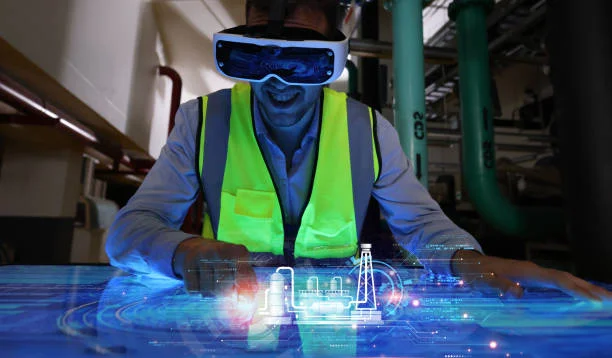In the ever-evolving field of industrial construction, staying abreast of the latest innovations and best practices is essential for success. This sector, known for its complex and large-scale projects, demands continuous improvement and adaptation to new technologies and methodologies.
Technological Advancements in Industrial Construction
Technology plays a pivotal role in transforming industrial construction. The use of Building Information Modelling (BIM) allows for improved planning and collaboration across various stakeholders. BIM provides a digital representation of a building’s characteristics, enabling teams to detect potential issues in the planning phase, thereby saving time and resources.
The integration of drones has facilitated more efficient site surveying. Drones offer high-quality aerial views, enhancing the accuracy of data collection. This innovation not only improves the quality of information but also ensures enhanced safety and reduced time for site analysis.
Discover more insights that perfectly connect with your current read — visit now!
Green Construction Practices
Environmental sustainability is becoming increasingly significant in industrial construction. Green building practices, aimed at reducing the environmental impact, are being adopted widely. The utilisation of eco-friendly materials and technologies ensures that buildings are energy-efficient and sustainable over their lifespan.
Renewable energy sources, such as solar and wind, are also being integrated into the design and operation of industrial facilities. These solutions help in reducing carbon footprints and operational costs, presenting both economic and environmental benefits.
Modular Construction
Modular construction is gaining traction as an innovative approach to industrial projects. This technique involves prefabricating building modules in a controlled environment, which are then transported to the site for assembly. The advantages of modular construction include reduced construction time, improved quality control, and decreased waste generation.
Moreover, because the construction is completed in a factory setting, it minimises disruptions on the actual site, which is particularly beneficial in urban areas where space and noise pollution can be challenging.
Lean Construction Principles
Lean construction principles aim to maximise value and minimise waste, drawing inspiration from manufacturing efficiency. This approach encourages a collaborative effort among all stakeholders, focusing on process optimisation to deliver projects efficiently and effectively.
One of the key aspects of lean construction is just-in-time delivery, which reduces the need for large inventories and cuts down on material waste. By streamlining workflows and improving communication among teams, projects are delivered on schedule and budget.
Safety Innovations
Safety is paramount in industrial construction, and innovative practices are being adopted to enhance worker safety. Wearable technology, such as GPS and health monitoring devices, enables real-time tracking of workers’ movements and vital signs, helping to prevent accidents and manage risks effectively.
Advanced safety training programs, utilizing virtual and augmented reality, offer immersive experiences for workers. These programs prepare employees for real-life scenarios, enhancing their ability to respond appropriately to emergencies.
The Future of Industrial Construction
The future of industrial construction is anticipated to be shaped by further technological advancements and a continued emphasis on sustainability. The adoption of artificial intelligence and machine learning is expected to optimise various aspects of project management and execution.
Additionally, as cities continue to grow and develop, industrial construction will likely focus more on integrating smart technologies and Internet of Things (IoT) solutions, making facilities more connected and efficient.
Challenges in Industrial Construction
Despite the advancements, the industrial construction sector faces several challenges. Regulatory compliances and securing skilled labour are ongoing concerns. Keeping pace with rapid technological changes and ensuring cybersecurity in digital tools are also pivotal challenges that organisations need to address.
Furthermore, effective project management and cost control remain key areas that require continuous attention to ensure successful project delivery.
Conclusion
Industrial construction’s is at the forefront of adopting innovative practices and technologies. By embracing these changes, companies can enhance efficiency, safety, and sustainability in their projects. As the industry continues to evolve, staying informed and agile will be crucial for navigating the challenges and seizing the opportunities that arise.
Step into a world of knowledge, growth, and ideas—only at Management Works Media.






